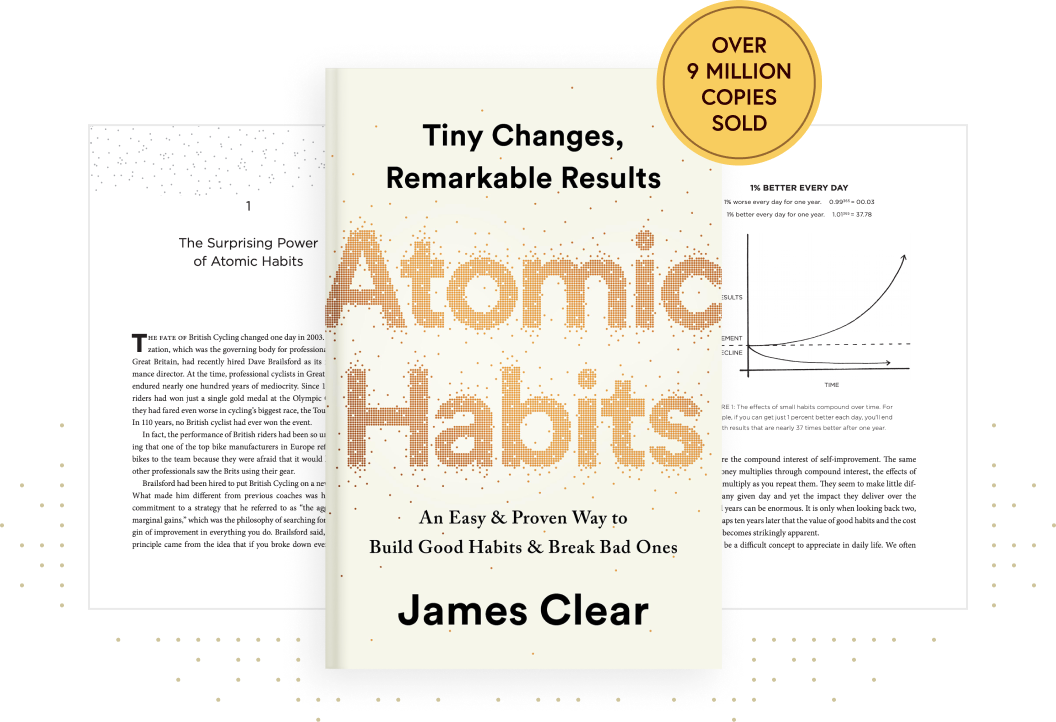9 Best Motivational Books to Transform Your Life and Boost Success
Feeling stuck or uninspired? Sometimes, all it takes is the right book to reignite your passion and drive. Whether you’re looking to boost your career, improve your mindset, or simply find a spark of inspiration, motivational books can be powerful tools for personal growth.
In this article, you’ll discover nine of the best motivational books that have transformed countless lives. These carefully selected titles offer wisdom, practical advice, and compelling stories to help you overcome obstacles and achieve your goals. Dive in and find your next great read that could change your life.
1. “Think and Grow Rich” by Napoleon Hill
Think and Grow Rich” by Napoleon Hill is a timeless classic that has influenced millions. This book dives into the psychology of success and how personal beliefs shape your journey to achieving goals.
Exploring the Power of Personal Beliefs
Hill emphasizes the crucial role that personal beliefs play in achieving success. He argues that belief fuels desire and action, leading to tangible results. By harnessing the power of positive thinking, you can remove barriers and attract opportunities. Hill’s “burning desire” concept is a recurring theme, demonstrating that fervent ambition can drive monumental achievements.
Key Takeaways for Motivation and Success
Hill outlines practical steps for success, such as setting clear goals, developing persistence, and surrounding yourself with a mastermind group. Each chapter delves into strategies like autosuggestion, which involves repeating positive affirmations to train your subconscious mind. Hill also discusses the importance of specialized knowledge, decision-making, and overcoming fear. By following these principles, you can cultivate a mindset conducive to wealth and personal growth.
2. “Awaken the Giant Within” by Tony Robbins
Tony Robbins’ “Awaken the Giant Within” focuses on unleashing your hidden potential. It’s a guide to personal mastery and leading an extraordinary life.
Harnessing Your Inner Potential
Discovering your true potential starts with understanding your core values and beliefs. Robbins emphasizes the importance of aligning your actions with these personal principles. Motivation surges when you identify what truly matters to you. Examples include setting clear, compelling goals and visualizing success. Robbins also introduces the concept of using empowering questions to shift your mindset, fostering a positive outlook.
Strategies to Take Control of Your Life
Taking control of your life involves mastering your emotions, finances, and relationships. Robbins outlines specific strategies to accomplish this. Begin by setting achievable goals and breaking them into manageable steps. Learn to reframe negative thoughts and cultivate empowering beliefs. Robbins also shares financial strategies, such as budgeting and investing wisely. Building strong relationships through effective communication and understanding others is another key aspect. These approaches collectively enable you to design and live the life you desire.
3. “The Power of Positive Thinking” by Norman Vincent Peale
Norman Vincent Peale’s classic sheds light on how optimism can transform your life. Let’s dive into the core aspects of the book.
The Impact of Optimism
Peale emphasizes the incredible influence of a positive mindset. He outlines how adopting optimistic thoughts can improve your mental and physical health, boost your confidence, and enhance your overall well-being. For example, he shares stories of individuals who achieved remarkable success by focusing on positive outcomes rather than dwelling on setbacks. Studies have supported these claims, showing that positive thinking correlates with lower stress levels and better cardiovascular health.
Practical Tips for Everyday Positivity
Peale provides actionable steps to cultivate a positive outlook. Start your day with affirmations, reminding yourself of your strengths and capabilities. Engage in prayer or meditation to center your thoughts. Visualize your goals, and believe that you can achieve them. Another tip is to surround yourself with supportive individuals who encourage your growth. Peale also suggests maintaining a gratitude journal to keep track of daily blessings, which can shift your focus from what’s going wrong to what’s going right.
4. “Drive: The Surprising Truth About What Motivates Us” by Daniel H. Pink
Pink’s “Drive” reveals the hidden truths about what truly motivates us in both our personal and professional lives.
Unveiling the Science Behind Motivation
Daniel H. Pink explores the science of motivation by focusing on three key elements: Autonomy, Mastery, and Purpose. He argues that traditional rewards, such as money and promotions, often fail to inspire high performance and satisfaction. Instead, people are driven by the desire to direct their own lives (Autonomy), improve and excel at their tasks (Mastery), and contribute to something greater than themselves (Purpose). Pink supports his arguments with robust research, shedding light on what truly fuels long-term motivation.
How to Apply These Principles
Incorporate Autonomy by giving yourself or your team more control over how tasks are executed. For example, create flexible work schedules or allow workers to choose their projects. Enhance Mastery by setting challenging yet achievable goals and providing regular feedback and opportunities for skill development. Cultivate Purpose by identifying and aligning personal goals with larger organizational or community objectives. Encourage discussions about mission and values to help everyone see the bigger picture. By applying these principles, you can foster a more motivated, fulfilled, and productive environment.
5. “Daring Greatly” by Brené Brown
Brené Brown’s “Daring Greatly” emphasizes the transformative power of vulnerability. Through her research, Brown reveals how embracing vulnerability can lead to remarkable personal and professional growth.
The Role of Vulnerability in Success
Brown explains that vulnerability is essential for creativity, innovation, and connection. She highlights that leaders who embrace vulnerability create environments where employees feel safe taking risks and expressing their ideas. For example, fostering open communication and admitting mistakes can build trust and drive progress. Vulnerability, as Brown argues, is not a weakness but a crucial component of courage and success.
Lessons on Courage and Emotional Resilience
“Daring Greatly” teaches you that true courage involves facing uncertainty, risk, and emotional exposure. Brown provides actionable strategies to build emotional resilience, such as practicing self-compassion and seeking support networks. These strategies help you navigate challenges and setbacks with grace. Cultivating emotional resilience allows you to recover from failures quickly, using them as learning opportunities rather than obstacles.
6. “Mindset: The New Psychology of Success” by Carol S. Dweck
Carol S. Dweck’s book, “Mindset: The New Psychology of Success,” delves into how your beliefs about your abilities can impact your success. It’s a must-read for understanding the power of a positive mindset.
Fixed vs. Growth Mindsets
Dweck distinguishes between fixed and growth mindsets. People with a fixed mindset believe their intelligence and abilities are static, which limits their potential. They often avoid challenges, give up easily, and see effort as fruitless.
Conversely, those with a growth mindset see abilities as developable through dedication and hard work. They embrace challenges, persevere in the face of setbacks, and view effort as the path to mastery. This perspective fosters a love of learning and resilience crucial for great accomplishment.
Advantages of Embracing a Growth Mindset
Adopting a growth mindset transforms your approach to life’s challenges. It encourages continuous learning and adaptability, which are vital in a rapidly changing world. You’ll find that setbacks are just steps toward improvement, not insurmountable obstacles.
Studies show that a growth mindset can significantly enhance motivation and achievement. For example, students with a growth mindset often outperform those with a fixed mindset, demonstrating better learning outcomes and higher grades. Similarly, professionals adopting this mindset tend to advance more quickly in their careers due to their willingness to learn and adapt.
Embrace a growth mindset to unlock your full potential and pave the way to greater success in personal and professional endeavors.
7. “The 7 Habits of Highly Effective People” by Stephen R. Covey
Comprehensive Habits for Personal and Professional Growth
Stephen R. Covey’s classic, “The 7 Habits of Highly Effective People,” outlines essential principles for success. Covey identifies seven habits that can transform both personal and professional lives. The first three habits focus on self-mastery and independence, while the next three highlight interdependence and teamwork. The final habit, “Sharpen the Saw,” emphasizes continuous improvement.
Implementing Effective Habits into Daily Life
Incorporate Covey’s habits to enhance your daily routines and productivity. Start with “Be Proactive” by taking control of your actions and decisions. Use “Begin with the End in Mind” for goal-setting, and “Put First Things First” to prioritize tasks. Embrace “Think Win-Win” to foster mutual benefits in relationships, and “Seek First to Understand, Then to Be Understood” to improve communication. Practice “Synergize” to promote collaboration, and “Sharpen the Saw” to maintain balance and growth. By integrating these habits, you’ll see significant improvements in your effectiveness and overall success.
8. “Man’s Search for Meaning” by Viktor E. Frankl
Finding Purpose in Extreme Conditions
Discovering purpose in the darkest moments is a central theme of “Man’s Search for Meaning.” Frankl, a Holocaust survivor, uses his harrowing experiences in Nazi concentration camps to illustrate how a sense of purpose can help you endure severe adversity. You’ll learn that even in the most extreme conditions, finding meaning in your suffering can provide the inner strength needed to survive and maintain your mental well-being.
Philosophical Insights on Human Motivation
Exploring why we strive for meaning, Frankl offers profound philosophical insights into human motivation. He argues that our primary drive isn’t pleasure but finding meaning in life. This perspective encourages you to find significance in all aspects of your life, whether through work, relationships, or personal growth. Frankl’s logotherapy approach underscores the importance of meaning as a crucial element in achieving mental health and fulfilling your life’s potential.
9. “Start with Why: How Great Leaders Inspire Everyone to Take Action” by Simon Sinek
The Importance of ‘Why’ in Motivation
Understanding your ‘why’ is pivotal in motivating yourself and others. Simon Sinek argues that knowing the purpose behind your actions gives clarity and direction. Leaders who articulate their ‘why’ can inspire trust and commitment in their teams, creating a more motivated and cohesive environment. For instance, companies like Apple thrive by sharing a clear ‘why’ that resonates with customers and employees alike.
Applying the ‘Golden Circle’ Model
Sinek introduces the ‘Golden Circle’ model, which includes ‘Why,’ ‘How,’ and ‘What.’ Start by defining ‘why’ you do what you do, then outline ‘how’ you’ll achieve it, and finally, specify ‘what’ you’ll produce. This framework helps prioritize purpose over process, ensuring that your motivation and actions align with your core values. Many successful leaders and organizations use this model to maintain focus and achieve their long-term goals effectively.
Conclusion
Motivational books hold the power to transform your mindset and unlock your potential. By incorporating the lessons from these influential reads, you can enhance your personal and professional growth. Whether you’re seeking to develop new habits, find your purpose, or embrace vulnerability, these books offer valuable insights. Embrace the wisdom they provide and let it guide you toward a more fulfilling and successful life. Remember, the journey to self-improvement starts with a single step, and these books can be your trusted companions along the way.
Frequently Asked Questions
What are the main themes of “Think and Grow Rich”?
“Think and Grow Rich” by Napoleon Hill focuses on the power of personal beliefs and the role they play in achieving success. It emphasizes goal setting, persistence, and the mastermind principle. The book outlines 13 principles for personal and financial achievement.
How does “Awaken the Giant Within” help with personal growth?
Tony Robbins’ “Awaken the Giant Within” offers strategies for taking control of your emotional, physical, and financial destiny. It encourages self-reflection, goal setting, and taking decisive action to create a fulfilling life.
What is the core message of “The Power of Positive Thinking”?
Norman Vincent Peale’s “The Power of Positive Thinking” promotes the idea that maintaining a positive attitude leads to a happier and more successful life. It includes techniques for developing a positive mindset and overcoming obstacles.
What lessons does “Drive” by Daniel H. Pink teach?
“Drive” by Daniel H. Pink explores what motivates people beyond traditional rewards. It focuses on three key elements—autonomy, mastery, and purpose—that contribute to intrinsic motivation and high performance.
How does “Daring Greatly” address vulnerability?
Brené Brown’s “Daring Greatly” underscores the importance of embracing vulnerability as a source of strength and connection. It encourages readers to face fear and uncertainty to live a more authentic and courageous life.
What is the growth mindset in Carol S. Dweck’s “Mindset”?
Carol S. Dweck’s “Mindset” differentiates between fixed and growth mindsets. A growth mindset believes abilities and intelligence can be developed through dedication and hard work, leading to greater accomplishment and resilience.
What are the 7 habits from “The 7 Habits of Highly Effective People”?
Stephen R. Covey’s “The 7 Habits of Highly Effective People” outlines habits for personal and professional success:
- Be Proactive
- Begin with the End in Mind
- Put First Things First
- Think Win-Win
- Seek First to Understand, Then to Be Understood
- Synergize
- Sharpen the Saw
What does “Man’s Search for Meaning” teach about purpose?
Viktor E. Frankl’s “Man’s Search for Meaning” suggests that finding purpose in life, even in extreme conditions, is essential for psychological survival. It underscores the importance of finding meaning through love, work, and suffering.
Why is knowing your ‘why’ important according to Simon Sinek?
Simon Sinek’s “Start with Why” emphasizes that understanding your ‘why’—your core purpose or belief—provides clarity and motivation. It helps align actions with core values, leading to more effective leadership and long-term success.
What is the ‘Golden Circle’ model?
Simon Sinek’s ‘Golden Circle’ model is a framework for inspirational leadership that starts with ‘why’ (core belief), followed by ‘how’ (process), and ‘what’ (result). It helps organizations inspire trust and loyalty by aligning actions with their core values.






